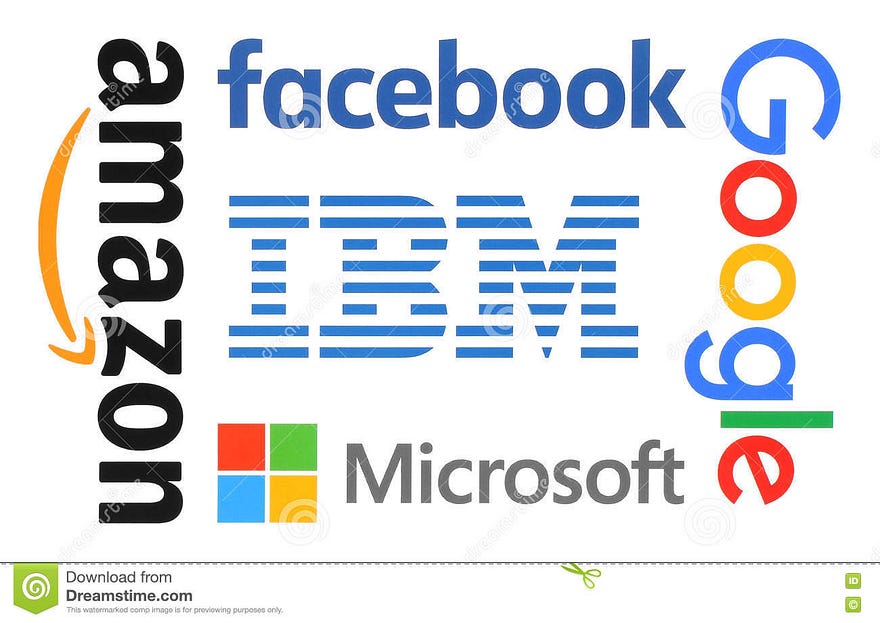What aspect of your digital life truly belongs to you?
What do you use to identify yourself online? Is it yours?
What happens to the data you create online? Can you confidently say that you own it? Or that you have a say in how it is used?
Currently, your only existence in the digital space is provided to you by a third party. Your identifiers, most commonly an email address, are not yours. Not really.
Were Google or Facebook to cease to exist I bet a lot of people would soon think differently about digital existence.
Think about what you would lose. For me, if I were to lose my Gmail account, I lose access to my photos and some documents as well as the unique login identifier for dozens of accounts.

How is it that the virtual world has become so dominated by a few large corporations?
When you start to think about these questions you realise that in the cyberspace we have created independently we are nothing
Why should you care?
You might be reading this thinking so what? I don’t exist online and why should I? The online world isn’t real.
Well, I would argue that for a world that isn’t real we sure spend a lot of time there. The information that can and is being gleaned from our online habits is both staggering and scary. Not to mention the lax controls on who can use this data and how.
We have seen time and time again that large organisations cannot be trusted to resist the temptation of using our data to further their goals and increase their profit margins.
We saw it with the recent Cambridge Analytica scandal where our democratic process is being subverted through the targeted spreading of misinformation that proved so effective. Here is a great article explaining this threat.
It is possible, for the right price, to know us better than we know ourselves.
Another example of a huge overreach in power is Google’s ability to know where you have been, where you are and where you are likely to go next. They even recently admitted to tracking phone location even after users turn off location services.
Think about that. One for-profit company has incredible access to your life in exchange for providing you with a service. Did we really sign up for this?
You cannot deny the benefits that these digital giants have brought us. But by greedily capturing more and more of our data under the pretence of providing better services they have become far too powerful.
Not to mention the security issues that arise from massive data silos stored in centralised databases creating tempting honeypots which hackers are only too happy to exploit.
Another Way
It does not have to be that way. We are slowly moving away from the data farms and monopolies of today into a user-centric model for both identity and data. With organisations like MyData 2018 at the heart of this change.
Self-Sovereign Identity has become the buzzword defining this change and its principles are outlined expertly by Christopher Allen in this post.
But first …
What even is Identity?
It is hard to quantify but an identity is something every human being has regardless of government documentation.
One thing we can say about physical identity in its rawest form is that you exist without anyone saying you can. You don’t rent you body off some all-powerful being. Your mind and its thoughts aren’t provided to you. They are yours!
We can all communicate, build up relationships. Trust people we meet and in turn be trusted. We don’t have to rely on anyone else to do this.
We have to try and replicate this online.
Why don’t we exist as our own virtual entities, constantly building up and developing our digital presences, connecting and networking with each other whilst simultaneously creating value and benefiting from it?
Digital identity can be thought of and is explained beautifully in this paper as a correlation. What actions and information are you correlated with online. Currently, we are correlated without our consent by numerous tracking agents. So we neither gain from this correlation or can control it. In the future, I hope we will be able to do both.
A Self-Sovereign Identity will be at the centre of this change but it is the applications and protocols that having this identity will enable that excites me.
Data
Data is at the heart of this.
If you do not own your own digital data do you own your digital self?
If you do not control your digital data streams are you in charge of your virtual self.
I am not sure I can say I own much digital data in the same way I own my watch or my clothes. Nobody other than me knows exactly whats in my wardrobe. My clothes do not sit in a Google wardrobe waiting for me to request access.
Furthermore, by owning and storing your own digital data you will be far less susceptible to being hacked. Just like it is very rare someone steals clothes from your wardrobe but is far more likely they steal from a clothes shop.
Individual stores of data will lack the incentives to hackers that a large store of personal information provides. While it may seem scary having all your information in one place, it is the better way. It is time we took responsibility for our own security.
We have to change how we think about data, how we store it and how we share it.
I believe, it should not be the responsibility of the application to hold data. The applications job is to build out the identity model to allow individuals to store their data. Applications in the future will provide interfaces to easily access and create value from our data without the responsibility or the temptation that arises when storing massive amounts of user data.
Data is the key to this century. It is our oil and currently, we give it away for free. In doing so we are stifling the innovation that having open access to data would undoubtedly create.
Open data markets are coming. Data markets that anyone can take part in and anyone can get access to information they require. Data markets that no one controls. Ocean Protocol is looking like a leader in this field.
We need to level the data playing field ensuring users are at the centre of their digital data flows and can easily use this data to generate value for themselves.
Our virtual selves exist in scattered fragmented data silos, where if we do exist we are merely serfs that are given virtual spaces to exist without being able to generate value or own it. Where our virtual providers decide what to do with the value we produce every day and throw us the crumbs. The shiny gadgets, the new features. We have virtually no say in how our data is really used.
Think of a world where everyone is in control of there own data and can decide how, where and what it is used for. Free Self-Sovereign Digital individuals would have the power to “vote” with there data. This will play a huge part in bringing about a fairer more equal world!
A world where anyone with an idea can put it to the people an either have data donated or can pay individuals for that data. We need to share the wealth and innovation that data is going to create or we risk creating a scary dystopian future.
App developers, web developers anyone dealing with users data should be thinking about how they can present there data to their users in the most useful way without relying on storing and exploiting this data for there own gain.
I hope the design question will become how can we adapt their identity so that they can store the required information themselves.
Looking to the Future
The world is changing.
Cyberspace, virtual reality, augmented reality. It is all expanding.
We are spending more and more time online, exploring and existing in this digital world. It is time we as individuals took more control of this space in which we spend our time.
We need to make sure everyone is benefiting from this expanding real estate and the value that a digitally interconnected world is creating.
The lines are becoming blurred between what is real and what is virtual.
If we do not stand up to for our digital rights and claim an independent piece of this space soon we risk losing our freedom all over again.
Can we as a society make this change?
Will governments and large corporations accept this transfer of power to the individual?
I am not sure but I urge everyone to think about the implications and to explore the solutions. We are on the brink of a paradigm shift that is going to shape this century.
A shift that will be driven by data. It is up to everyone of us to make sure this shift is for the benefit of all, not just a select few.
As recent graduate and software developer I have become increasingly interested in the implications of blockchain technology and more specifically identity. This October I will be starting a PhD on Blockchain, Identity and Cryptography working in the new Blockpass Identity Lab at Edinburgh Napier University. My aim is to help bring about a transition to a new Self-Sovereign model for identity online.
